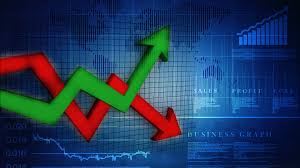Cutting-Edge Tools and Technologies from Forward-Thinking CFD Brokers
In the world of Contract for Difference (CFD) trading, selecting the right broker is crucial for success. With a plethora of options available, traders often find themselves overwhelmed. However, employing effective strategies can help navigate through the abundance of choices and identify the cfd broker that best suits one’s trading needs.
One key aspect to consider when choosing a CFD broker is the range of financial instruments offered. A reputable broker should provide access to a diverse selection of assets, including stocks, commodities, forex, and indices. This allows traders to diversify their portfolios and capitalize on various market opportunities.
Another important factor to evaluate is the trading platform offered by the broker. A user-friendly and feature-rich platform can significantly enhance the trading experience. Look for platforms that offer advanced charting tools, real-time market data, and seamless trade execution. Additionally, mobile compatibility is essential for traders who prefer to monitor their positions on the go.
When it comes to leverage, it’s essential to opt for a broker that offers flexible leverage options. While leverage can amplify profits, it also increases the risk of losses. Therefore, traders should exercise caution and choose leverage levels that align with their risk tolerance and trading strategy.
Transaction costs are another consideration when selecting a CFD broker. These costs may include spreads, commissions, and overnight financing fees. It’s crucial to compare these costs across different brokers to ensure competitive pricing.
Furthermore, reliability and security are paramount when entrusting your funds to a broker. Look for brokers that adhere to stringent regulatory standards and employ robust security measures to safeguard client assets. While regulatory compliance is vital, it’s also essential to conduct due diligence and research the broker’s reputation within the trading community.
Customer support is another aspect that shouldn’t be overlooked. A responsive and knowledgeable support team can assist traders in resolving issues and addressing concerns promptly. Look for brokers that offer multiple channels of communication, such as live chat, email, and phone support.
Lastly, consider the educational resources and research tools provided by the broker. Access to market analysis, educational materials, and trading tutorials can empower traders to make informed decisions and improve their trading skills over time.
In conclusion, selecting a CFD broker requires careful consideration of various factors, including the range of financial instruments offered, the quality of the trading platform, transaction costs, regulatory compliance, customer support, and educational resources. By employing effective strategies and conducting thorough research, traders can identify the broker that best aligns with their trading goals and preferences.

